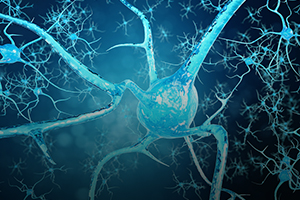Re-Growing-Neurons

Researchers in China have reportedly discovered a way to grow new brain cells, a breakthrough that could someday aid victims of stroke or brain injury in their recovery, as well as lead to a cure for a host of neurodegenerative diseases, including Alzheimer’s and Parkinson’s.
The technique involved injecting a cocktail of drugs directly into the brains of living mice, targeting a group of cells known as astrocytes. Although their role is primarily to support neurons, astrocytes are capable of certain signaling activity and are responsible for the plasticity of the central nervous system. They are also very plentiful in the brain, outnumbering neurons by 50 to 1. In addition, astrocytes tend to survive a stroke even when the neurons around them die off.
The chemicals are selected to activate specific genes within the astrocytes, effectively erasing their identity and replacing it with a new one. After eight weeks, analysis of the brain tissue revealed that 80 to 90 percent of the astrocytes at the site of the injection had begun to display characteristics resembling neurons, including altered shape, gene activity, and changes to the way they transmitted electrical signals.
There is still much to learn about exactly what types of neurons are being created before the method can even be trialed on humans; for example, too many excitation neurons could trigger seizures. Different diseases also require different types of neurons for treatment; for example, a therapy for Parkinson’s disease would primarily require neurons that produce dopamine. The next step will be to test the cocktail on mice that have experienced a stroke to confirm to what extent the treatment actually aids in recovery.
For information: Hongkui Deng, Peking University Health Science Center, 38 Xueyuan Road, Haidian District, Beijing 100191, China; phone: +86-010-82802142; website: http://e.bjmu.edu.cn/index.htm